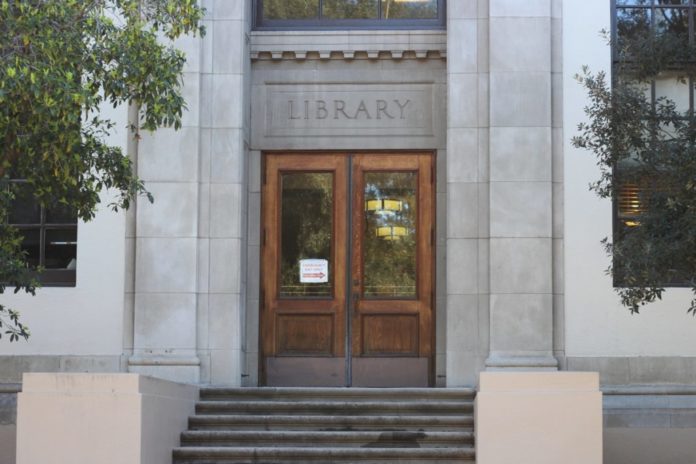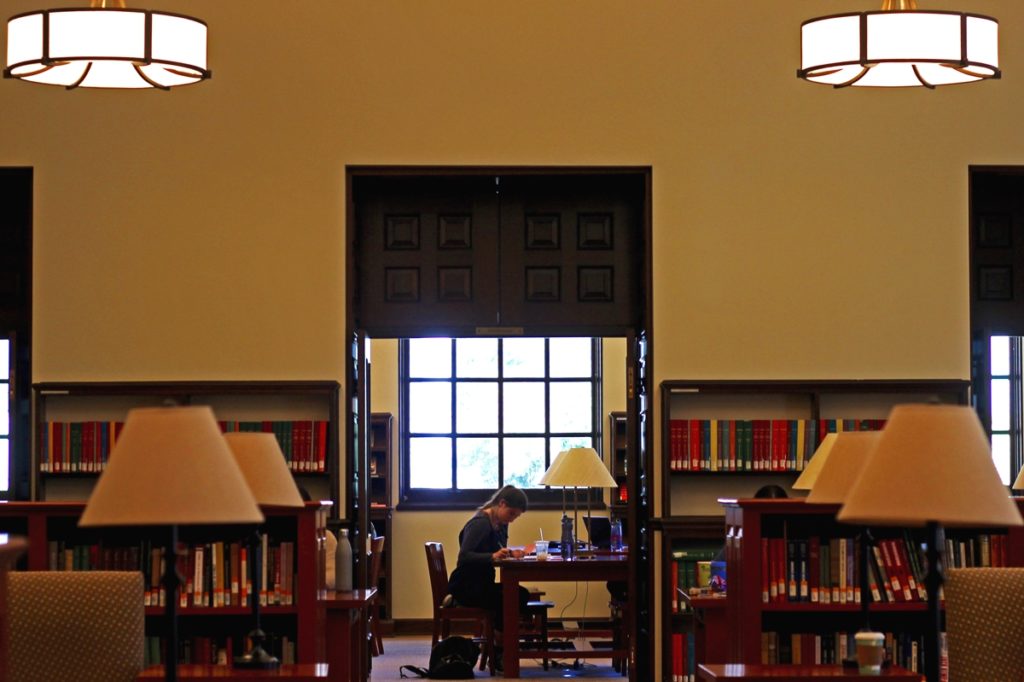
The college has been searching for a new College Librarian since October 2018, bringing four final candidates to campus for public presentations and Q&A sessions open to students, faculty and administrators. Three candidates visited Occidental and gave their presentations Jan. 24, Jan. 31 and Feb. 6, the last candidate will be on campus Feb. 13.
Marsha Schnirring, interim assistant dean of the library/CDLA, said the role of a librarian involves interaction with various departments.
“The library and the CDLA are made up of different departments,” Schnirring said. “So in the library, you have circulation services … they check books out, they re-shelf the books when people return them. You have collection services; they’re the people that make certain that we buy new materials … And you have special collections and college archives. So that group works with special materials in the college archives. In the CDLA, we have the instruction and research groups.”
According to the job description posted Sep. 21, 2018 by Schnirring, the College Librarian is responsible for a budget of over $1 million and 22 staff members.
“The College Librarian is the chief administrator of the Library and the Center for the Digital Liberal Arts (CDLA), reports directly to the Dean of the College and Vice President for Academic Affairs, and has faculty status (is a voting member of the faculty w/o tenure),” the job description states. “S/he manages the Academic Commons, the facility that houses the Library and CDLA, and collaborates with the various curricular and co-curricular departments and programs in the Commons to provide a physical space that supports the ambitions of the academic program.”
The College Librarian search committee includes 12 members. The two chairs are Schnirring and Wendy Sternberg, vice president for academic affairs and dean of the college. The committee also includes three administrators, five faculty members, one staff member and one student. Sternberg said these committee members were selected with the goal of representing different college community members.
“The committee is broadly representative of the faculty. There’s staff members from inside the library and out, there’s also a student on the committee,” Sternberg said. “It was very important for this process to have our candidates meet with as many people as possible.”

Lilah Abrams (sophomore), the student representative on the committee, said her appointment to the committee was an internal process that was conducted through the Associated Students of Occidental College (ASOC). Abrams said she feels welcomed in the committee.
“The committee’s been super open to having me to represent student voices and have as much weight on the committee as any other faculty member,” Abrams said.
One of the staff members on the search committee is Library Resource Acquisition Specialist Maria Cristina Sevillas-Pappas. She said the candidate meetings are designed to give each candidate an equal chance.
“We can assess these candidates equally — all the patterns are the same, all the questionnaires are the same for them,” Sevillas-Pappas said. “So we can assess who fits well, the reception of the students, the reception of the faculty and so on, and at the same time [the candidate’s] reception of us.”
The final hiring decision will be made by Sternberg.
“The aim is for all of the feedback that’s generated about the candidates to come to the committee, for the committee to make a recommendation that ultimately I would take as I make a decision on who to hire,” Sternberg said. “So ultimately, the hiring decision is mine, but the committee is really very important in gathering the feedback that will inform the decision.”
When drafting the job description, Sternberg sought input from the college’s leadership to determine what attributes were desired in a candidate. Then, any candidates who do not meet the minimum requirements in the description, such as five years of library experience and a graduate degree in either information sciences or a related subject area, were eliminated from the application, according to the description. The remaining candidates were then evaluated based on a scoring rubric.
“We developed a rubric for evaluating them based on what the key functions were and the level of experience that people had with them,” Schnirring said. “From that, then we came up with a subgroup that we did [ten] preliminary interviews with … and from that, the top four are the people that we invited to campus [for meetings].”
A feedback form was created in order to collect student and faculty opinions on these candidates, Schnirring said. The influence of different campus communities in the decision-making process is dependent on their participation in giving feedback.
“Say, for example, 100 people participated in the evaluation, and only ten percent of them were students and 90 percent were other people in the community, either faculty or administrators or staff,” Schnirring said. “Obviously [non-students] would have more input into the process.”
Committee members including Schnirring, Sternberg and Abrams commented on the general lack of student participation in the search process.
“We haven’t had a lot of students coming to the presentations or the Q&A,” Schnirring said.
Sternberg confirmed Schnirring’s observations, saying she had only seen a few, if any, students present in the candidate meetings.
Abrams also agreed and suggested that it may be due to the various other obligations and events students have.
“I think it’s important to have students represented in faculty hiring decisions and I think because [the librarian position] is really catered as much to students as they are to faculty, having some student opinion is important,” Abrams said.
The fourth and final librarian candidate will come to campus Feb. 12–13 for a public presentation and two Q&As with students, faculty, staff and administrators, with candidate evaluations due this Friday, Feb. 15.
![]()






























